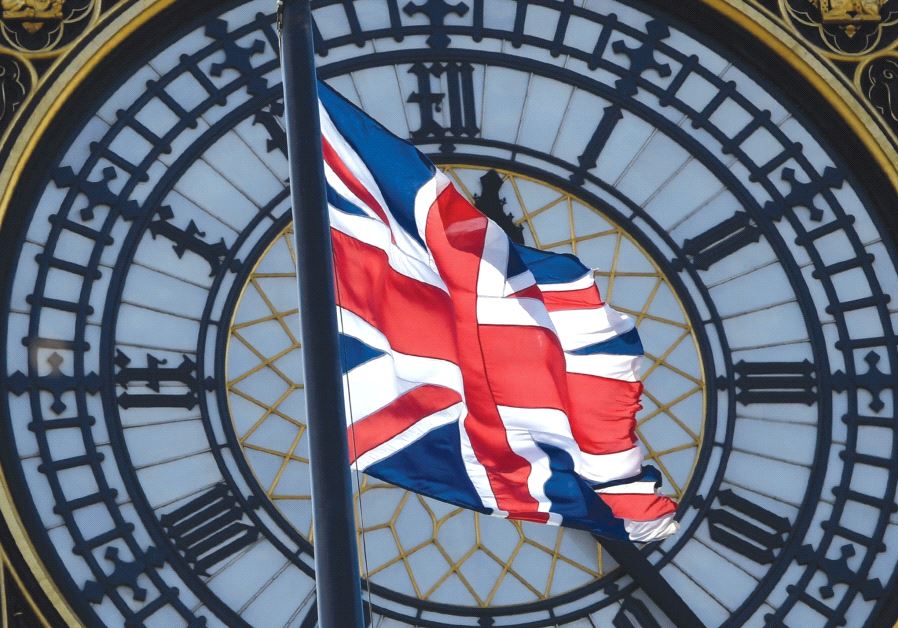Will a third of Brits vote for a hard-left antisemite?
When facing such criticism, the Labour leader has offered the defense that he is anti-Israel, not anti-Jewish.
 A Union Jack flag flies in front of the clock face on the Houses of Parliament in central London
A Union Jack flag flies in front of the clock face on the Houses of Parliament in central London